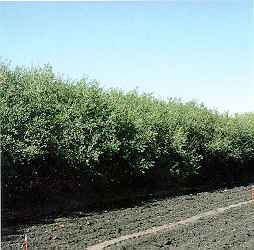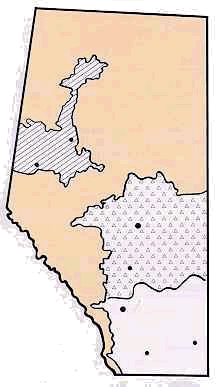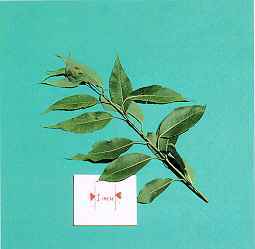| | Plant characteristics | Fall colour | Site preference | Hardiness | Uses | Problems | Pruning
.

Scientific Name: Salix amygdaloides Anderss
Plant Characteristics
The peach leaf willow is a hardy, fast-growing, deciduous tree with ascending branches appearing silvery-grey. This is a small to medium-large tree, native to the northern plains and occasionally seen as a sizable tree along streams or watercourses.
Develops a thicket of stems.
It grows to a mature height of 5 to 8 m (17 to 26 ft), with a spread of 5 m (17 ft). It has an annual growth rate of 15 to 100 cm (6 to 40 in.), and a useful life of 25 to 50 years. Catkins appear at the same time as the leaves.
Bark- - The bark is rough, dark reddish-brown, branches greyish-brown, twigs yellowish to reddish-brown, drooping.
Leaves - Leaves are alternate, simple, 5 to 12 cm (2 to 5 in.) long, 1.5 to 3 cm (0.5 to 1.25 in.) wide, ovate- lanceolate, acuminate, tapering to base; margins closely serrate; light to yellowish-green above, glaucous below, glabrous on both sides. Petiole 6 to 15 mm (0.25 to 0.5 in.) long.
Propagated by cuttings.
Fall Colour
Green leaves remain late into fall.
Site Preference
Peach leaf willow can be planted in full sun or half shade. It likes moisture, but not poorly drained soil and cannot tolerate
flooding. It prefers organic soil and will not tolerate alkaline soil. This willow will not tolerate drought.
Hardiness
Hardy - will survive under extreme climate exposure.
.


Uses
In shelterbelt situations this willow should be planted 2 to 4 m (6 to 13 ft) between trees in the row and 5 to 8 m (17 to 26 ft) between rows.
Problems
Performs poorly in arid sites.
Pruning
Usually does not require pruning. Prune to remove dead, diseased or broken branches.
.

Shelterbelts Varieties for Alberta provides information on a number of other trees and shrubs than may be suitable for shelterbelts.
Visit our website directory for the Reforestation Woodlot Listings. |
|